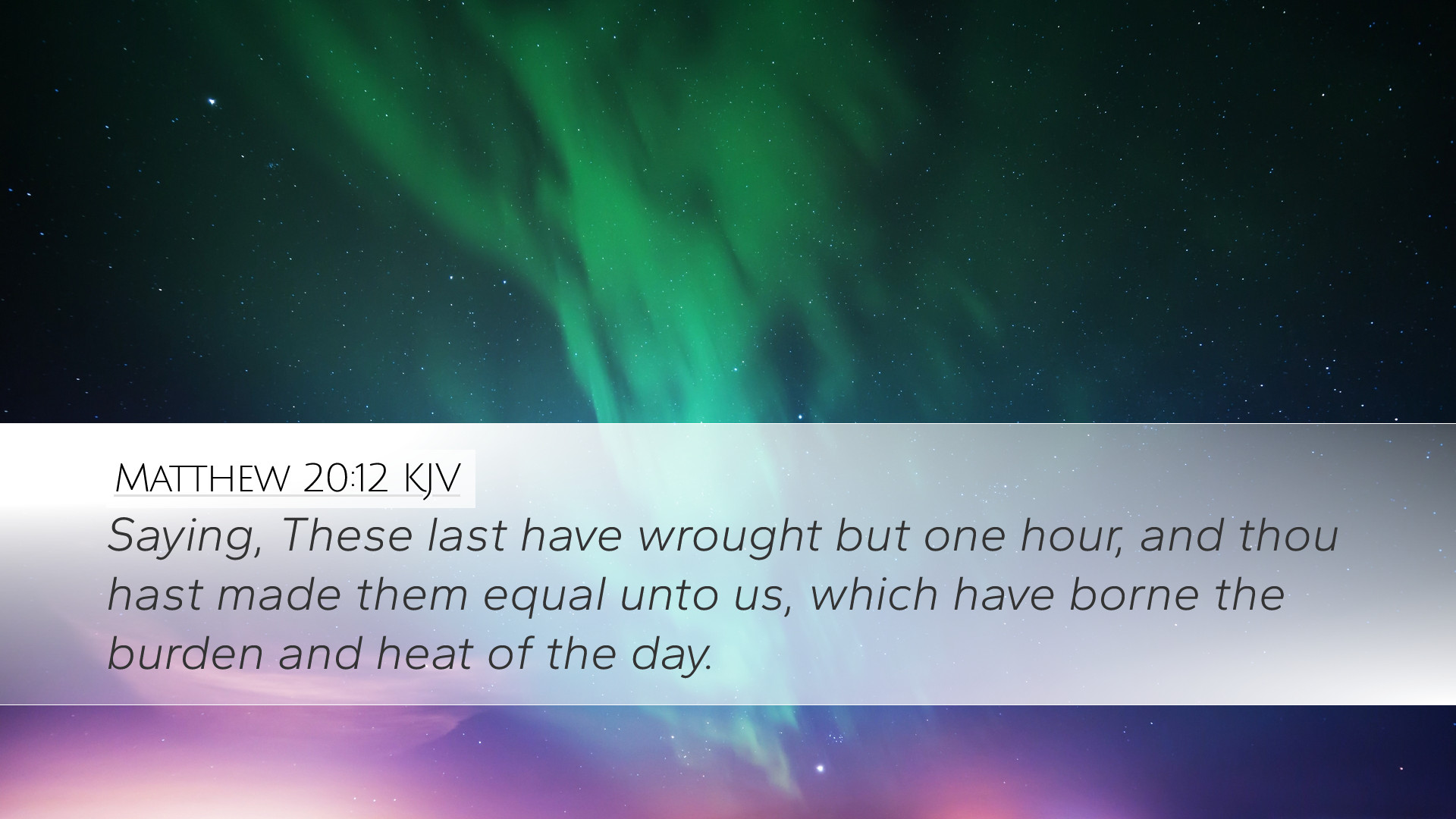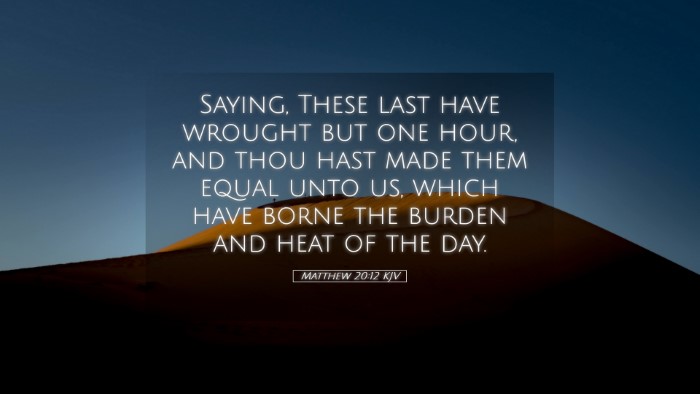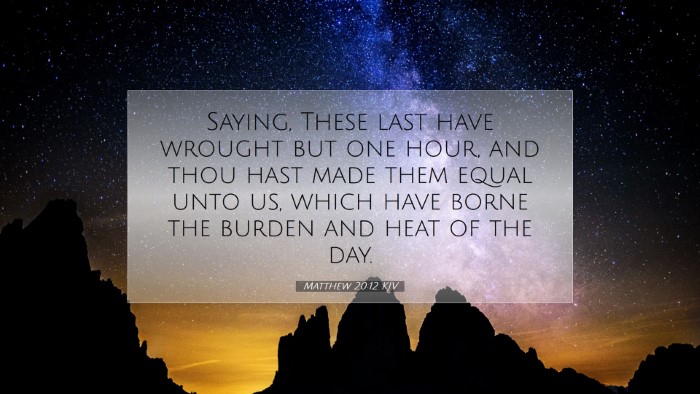Commentary on Matthew 20:12
Matthew 20:12 states: "These last have wrought but one hour, and thou hast made them equal unto us, which have borne the burden and heat of the day." This verse is part of the Parable of the Laborers in the Vineyard, illustrating various theological themes central to the Christian faith. Below, we summarize insights from notable public domain commentaries including those by Matthew Henry, Albert Barnes, and Adam Clarke.
The Context of the Parable
The context of this parable is critical for understanding its implications. Jesus shares this story after His prediction of His impending death, emphasizing themes of grace, equality, and God's sovereignty over salvation. The laborers symbolize different groups within the Kingdom of Heaven, showcasing the grace of God that operates distinctly across various lives.
Commentary Insights
Matthew Henry
Matthew Henry emphasizes that the structure of the parable reflects the merciful nature of God. He notes that the wages given at the end of the day symbolize the generous and egalitarian grace of God. In that context, the complaint of the first workers reveals a human tendency toward jealousy and entitlement when compared with others who receive unmerited grace. Henry suggests that this parable serves as a reminder that all believers, regardless of when they come to faith, are treated equally in the eyes of God.
"The kingdom of heaven is not limited by human standards of fairness; it operates by divine grace, which confounds human expectations."
Albert Barnes
Barnes provides a thorough exegetical analysis of the verse, focusing on the irony present in the laborers' complaint. He points out that the grace exemplified in the owner’s decision to pay equally to all laborers transcends human concepts of fairness. He elaborates that the 'burden and heat of the day' stands for the trials and sacrifices made in service to God, but emphasizes that God's favor does not depend on the duration or perceived severity of one's labor. Barnes underscores that God's grace abundantly covers all, reinforcing that every person is equally valued, regardless of their past.
"The early workers did not realize that the master's generosity was not an affront to their labor but a manifestation of his goodness."
Adam Clarke
Adam Clarke provides a poignant reflection on the parable, noting that the statement by the first laborers reflects a misunderstanding of grace. Clarke emphasizes that the master of the vineyard represents Christ, who alone defines the value of labor in His Kingdom. Clarke suggests that the phrase 'burden and heat of the day' symbolizes the struggles each believer might endure throughout their lives. He comments that this parable challenges the reader to evaluate their understanding of God’s grace and calls them to a deeper sense of humility and gratitude, rather than a desire for recognition or reward.
"All are equal in grace, no matter the time or effort invested; grace is not something we earn, but a gift bestowed by a generous God."
Theological Implications
This verse and the parable as a whole pose significant theological questions regarding the nature of God’s justice and grace. Key themes that emerge include:
- Grace vs. Merit: The parable emphasizes that divine grace is not transactional. Our standing before God is based on His character rather than our performance.
- Equality in Christ: Regardless of when or how one comes to faith, all are equal beneficiaries of God’s grace, which helps dismantle hierarchies within the church.
- Humility and Gratitude: The response to God’s grace should cultivate humility in believers, recognizing that no one has a superior claim to God’s favor.
Application for Pastors and Theologians
For pastors and theologians, Matthew 20:12 offers rich material for teaching and reflection. Consider the following applications:
- Encouragement for New Believers: Assure new believers that their late acknowledgment of faith does not diminish their acceptance in Christ.
- Celebrating Diversity in Church: Promote an understanding of the diverse backgrounds from which believers come, and honor each journey as valid in the eyes of God.
- Calling for Generosity: Encourage a generous spirit within the church community, reflecting God’s unconditional grace towards others.
Conclusion
Matthew 20:12 serves as a profound reminder of the essence of God’s grace and the equality bestowed upon all believers. As indicated by the combined insights of Matthew Henry, Albert Barnes, and Adam Clarke, this parable distills the heart of Christian teaching—a generous God who pays the same wages for all laborers, emphasizing that in His Kingdom, grace prevails over human understanding of fairness. Thus, the call is to rejoice in God’s abundant grace, recognizing its availability to all who seek Him.


